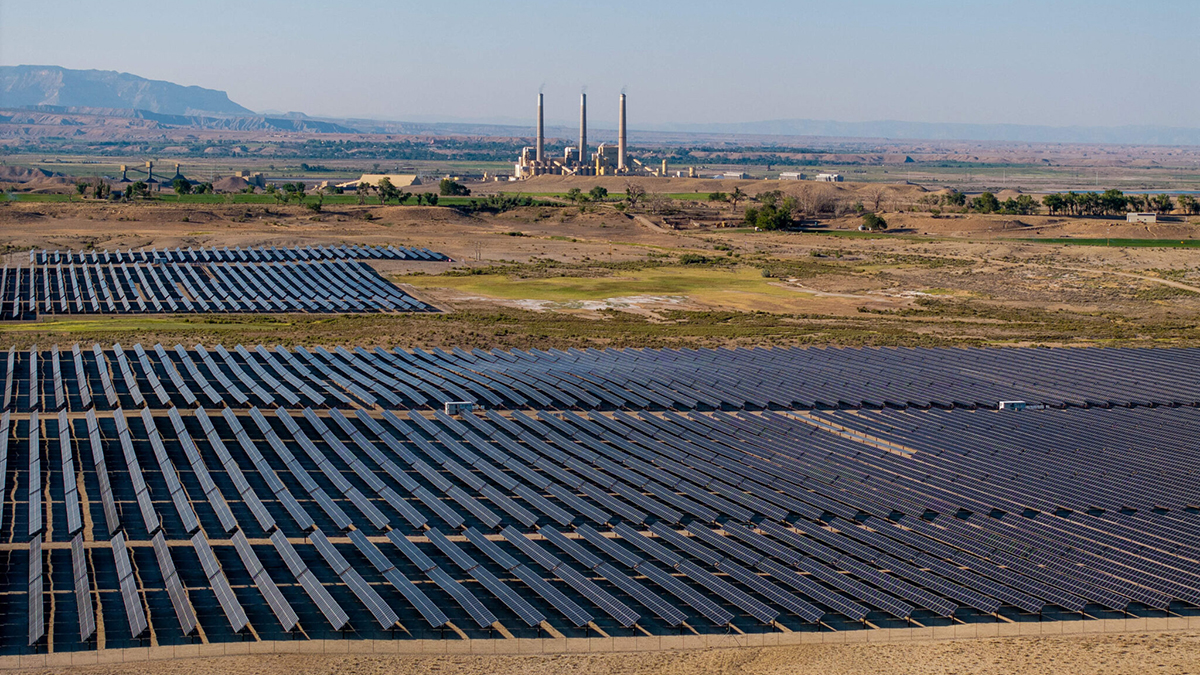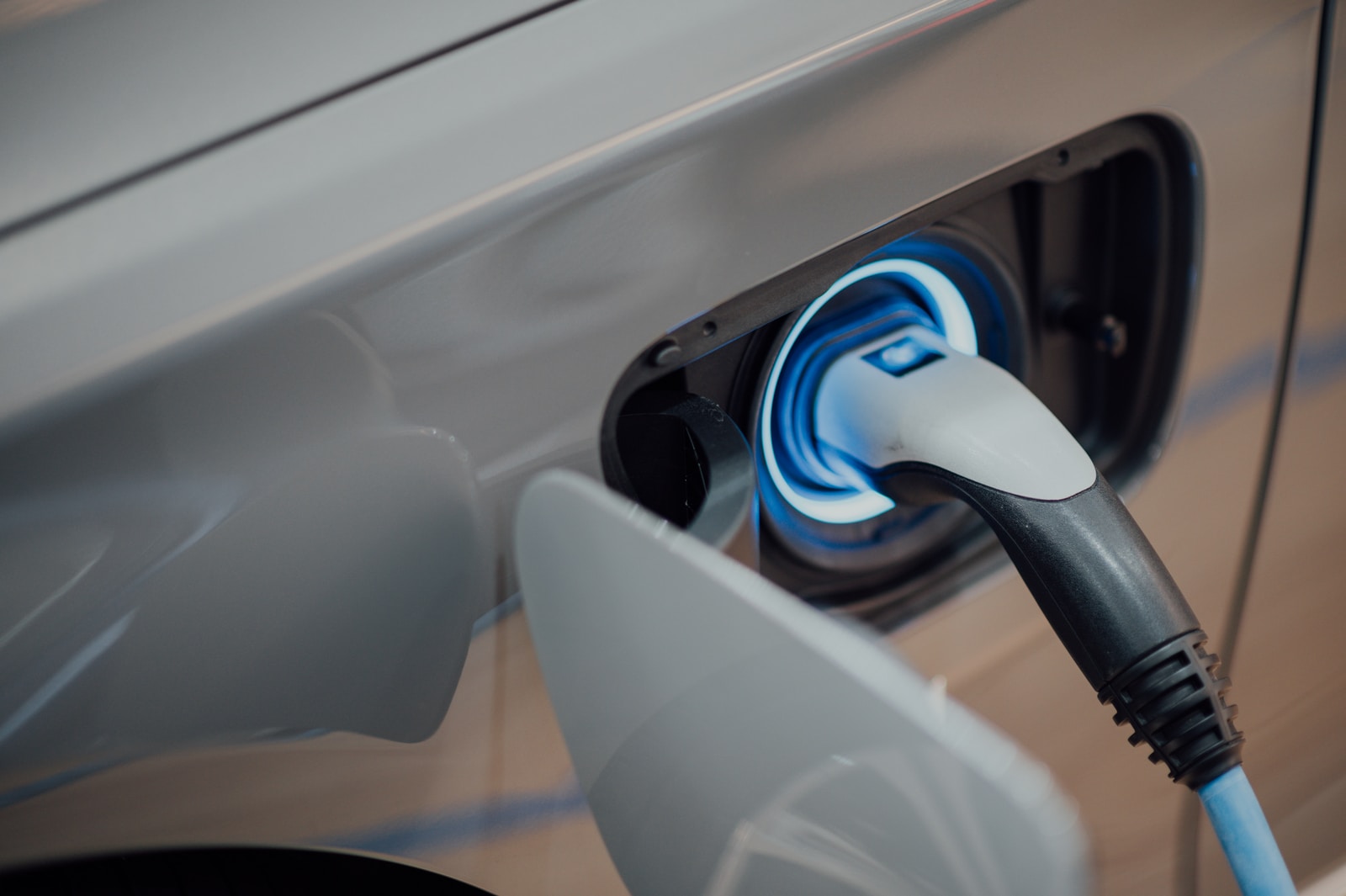Environment
Tax bill proposal terminating clean energy credits may increase Utahns’ energy costs

A solar installation in Emery County, with PacifiCorp’s Hunter coal-fired power plant in the background, is pictured on Wednesday, July 31, 2024. Photo: Spenser Heaps for Utah News Dispatch
The U.S. House Ways and Means Committee voted to advance its portion of the reconciliation package that would eliminate major Biden administration clean energy tax programs
SALT LAKE CITY, Utah – After a lengthy hearing that ran overnight and amid orders from President Donald Trump to reduce the national deficit, a U.S. House committee advanced a tax bill that, among many other actions, would phase out clean energy initiatives from the Biden administration that have substantially contributed to energy developments in Utah.
The House Ways and Means Committee, the chief tax-writing panel in the House, approved its bill that, bundled with other bills, make up Republicans’ “big, beautiful bill” on Wednesday. With full Congressional approval, the large reconciliation package would establish some Trump priorities, including eliminating the tax on tips, paving the way for a national school choice voucher program, and eliminating major programs from President Joe Biden’s Inflation Reduction Act, a 2022 federal law that propelled clean energy investments.
Environmentalists in the state expressed deep concerns when the proposal was unveiled on Monday that some federal tax credits for clean energy developments, electric vehicles, home energy efficiency upgrades, and manufacturing projects would either be eliminated or phased out early.
Some pointed out that repealing these energy incentives would drive up electricity prices in Utah. According to a study by Rhodium Group, an independent research provider, energy bills would rise between 2.5% and 5.5% in Utah if the tax credits were to be repealed. Another study from Energy Innovation, an energy and climate policy think tank, indicates that the action could increase energy costs for an average Utah household by $20 annually in 2030, and more than $120 a year in 2035.
“Current federal policies, such as clean energy tax credits, grants, loans, and standards accelerate clean energy project deployment and electric vehicle sales in Utah,” Energy Innovation wrote in the report. “But repealing these policies would force Utah households to pay higher electricity bills because less low-cost clean energy is being built, while fewer EVs on the road would force consumers to spend more on gasoline.”
Simultaneously, phasing out the clean energy tax credits would eliminate the prospects of supporting 3,200 jobs annually, and $50 million in local tax revenue by 2032, according to BW Research and the Nature Conservancy.
Josh Craft, director of government relations and public affairs at the nonprofit Utah Clean Energy, said in a statement that this proposed budget would make it much harder to bring the necessary clean energy and other efficiency resources to meet Utah’s growing needs.
“Clean energy tax credits are critical to harnessing Utah’s plentiful solar, geothermal, and energy storage resources this decade,” Craft said. “The House should revise the final reconciliation bill to maintain robust clean energy tax credits that are workable for Utah businesses and communities.”
Republicans voted along party lines to advance the draft to the House floor, including Utah Republican Rep. Blake Moore, who sits on the House Ways and Means Committee and praised the bill in a social media post, arguing that it would keep taxes low for families, workers and businesses.
“Today we will advance policies that prevent a major tax hike on hardworking Americans, provide financial relief for families and parents, put American workers first, fuel economic growth, make American companies more competitive, and lower taxes for our farmers,” Moore wrote.
However, his nod to the bill didn’t sit well among some Utah environmentalists. Rebekah Ashley, Sierra Club Utah’s lead organizer on climate and energy described it as “deeply disappointing” and “a disservice to Utahns.”
The organization lamented the bill’s progress in a news release, since the tax credits had propelled some of the state’s most important clean energy projects recently, including Fervo’s Cape Station, located in Beaver County, which is set to become the largest next-generation geothermal project in the world. The incentives also helped to make possible the Green River Energy Center in Emery County, which is poised to become one the country’s largest solar and storage facilities.
“It blocks economic opportunity, puts good-paying jobs out of reach, and makes it harder for families to afford home energy upgrades that lower monthly bills and improve quality of life,” Ashley said in a statement. “These clean energy tax credits have supported some of Utah’s most exciting and forward looking projects, but by voting to rollback these investments, Rep. Moore is turning his back on the clean energy future that Utahns deserve.”
By Alixel Cabrera for Utah News Dispatch



















